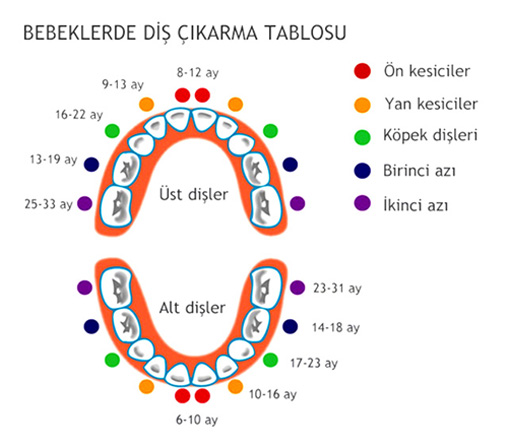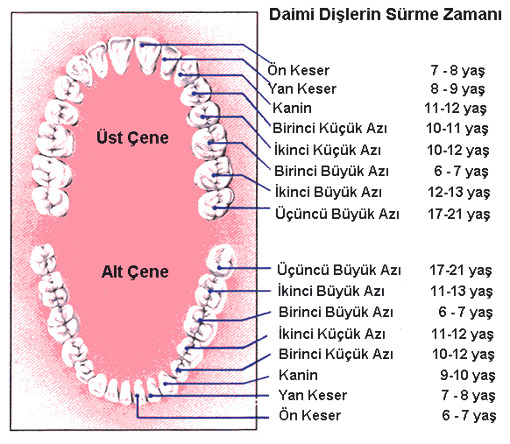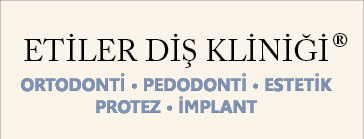Baby Teeth and Teething
When do babies begin teething?The first baby teeth usually begin to erupt at six months. There may be delays, however, relating to the individual child. The normal period for the eruption of baby teeth is 18 months. If they have not erupted within that period of time, the child should be taken to the dentist for an examination.

What should I do if my child was born with teeth?
Some babies are born with a few teeth and the others will begin to erupt immediately afterwards. However, these teeth are typically quite loose. Therefore, it is recommended that they dentist extract them, otherwise the child may swallow them or they may irritate to the mother’s breast while feeding.
What kind of symptoms will be present in my child’s gums as the baby teeth erupt?Infants may experience a bad mood, loss of appetite, itching gums and an increased amount of saliva prior to the eruption of teeth. The gums swell in the area from which a tooth is about to erupt. All of these discomforts disappear with the eruption of the tooth. You child may benefit from special gels forrelieving painto be applied to the gums after eating. These are available at pharmacies.
It is time for my child’s teething to start, but it hasn’t yet. Should I be worried?If you child is over 18 months old and no baby teeth have erupted you should take your child to a dentist for examination.
There are spaces between my child’s teeth. When should they be filled in?The gaps between baby teeth are known as “monkey diastema”. When the baby teeth fall out and the permanent teeth emerge, these gaps will be filled in because the permanent teeth are much larger than the baby teeth.If these gaps are not big enough, the likelihood of crowding increases when the permanent teeth erupt.
When do the baby teeth fall out the permanent teeth erupt?


